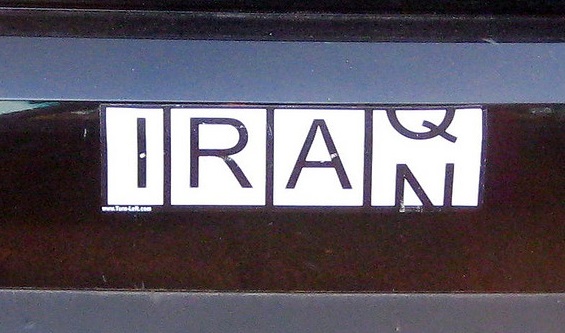 Some weeks ago it was already clear that the Abbott government would face tough decisions about Iraq in the near future. That assessment was correct but understated. To be successful, Australia’s political and military leaders will have to understand this war for what it is and make decisions about who will be friend and enemy. This operation is not war in the way many Western leaders would prefer to frame it; it’s about armed politics from the ground up. And that plays to the advantage of Iran and its unconventional warfare (UW) capability.
Some weeks ago it was already clear that the Abbott government would face tough decisions about Iraq in the near future. That assessment was correct but understated. To be successful, Australia’s political and military leaders will have to understand this war for what it is and make decisions about who will be friend and enemy. This operation is not war in the way many Western leaders would prefer to frame it; it’s about armed politics from the ground up. And that plays to the advantage of Iran and its unconventional warfare (UW) capability.
In his 2012 book, War from the Ground Up, Emile Simpson explains that modern warfare and politics are still intimately connected. We’re still inclined to see conflict in binary terms, but local politics in broken and failed states are typically complex and dynamic. Modern war in general, and this latest Mideast war in particular, is about armed political factions generating political influence and power through force and coercion. To use Simpson’s phrase, it’s about politics ‘from the ground up’ and requires a strategy and tactics that engage armed political actors at the lowest levels. Iran seems to understand this better than the coalition. Iran is also the only state that has a strategic culture, warfighting concepts, and tactics that will enable it to achieve its ends.
Operation Inherent Resolve features an odd coalition currently arranged against the Islamic State (IS or ISIS or ISIL or Daesh) and, maybe, the Assad regime and Jabhat al-Nusra. The coalition has official and unofficial members: the official members include the countries contributing forces and the unofficial members include the local militia groups. Those groups should be seen for what they are—armed political actors. While the official members of the coalition are slowly waking up to the reality on the ground in Iraq, Iran has had its unconventional warriors building a broad coalition of support among the militias through armed politics.
When IS first started its expansion and mobilised its ‘technical’ blitzkrieg through large parts of Iraq and Syria few people were aware of the activities of Iran’s Revolutionary Guard’s Quds Force. Even fewer probably would have heard of Major General Qassem Suleimani, their current commander. But Sulemani and his forces could mean a lot to Australia in the near future. Like our special forces soldiers who have deployed to Iraq, Suleimani and his men, are veterans of the previous war in Iraq. Unlike our soldiers though, these Iranians have been on the other side of the conflict. Quds has been advising, assisting, training and equipping its proxy forces in Iraq just as it has done previously across the Middle East, from Hamas in the Occupied Territories to Hezbollah in Lebanon. By deploying advisers on the ground, Iran has gained trust and influence. Iran’s current favoured proxy in Iraq is Asaib Ahl al-Haq (AAH), a splinter group of the Mahdi army that not long ago was attacking Iraqi state and US forces, under Suleimani’s advice and guidance.
Currently, the Australian Special Forces are slated to work with the Iraqi Counter Terrorism Service (CTS), or more specifically, the Iraqi Special Operations Force (ISOF). Recent statements by the Minister for Defence David Johnston indicate that Australian diggers may have to work with Quds Force and its militia. Ironically, ISOF was not long ago actively engaged in efforts to disrupt the activities of the Quds Force and its local proxies, including AAH, operating in Iraq. Now however, the official coalition and Iran have converging as well as conflicting interests in the sands of Mesopotamia. The major point of convergence is IS. Some in the US and the West mistakenly view the group as an existential threat to themselves, but in Iran’s case the threat is proximate and worrisome.
This current sectarian conflict has somewhat dislocated Iran’s application of its UW doctrine and may cause its strategy to evolve (as good strategies should). As a force that places importance on building broad non-sectarian based coalitions, Iran faces the prospect of working with a government in Iraq that can’t shake the spectre of Shiite chauvinism and an Alawite-led one in Syria that’s ruthlessly trying to crush the uprising of the majority Sunni population. Further, while it has been able to rein in its proxies from attacking US interests in Iraq, cases of recent Shi’ite militia bloodletting suggest Iran’s influence over those proxies is weaker than Tehran would like.
Iran’s specific strategic evolution aside, Inherent Resolve is politics by the bullet rather than the ballot as myriad sects, ethnicities, and tribes find themselves coalescing around pre-Westphalian alliances of convenience or necessity in search of security. Our role in strengthening the Iraqi defence forces’ capability to fight is important to prevent the further disintegration of the country. We may also have to support armed Sunni militias willing to oppose ISIS. Iran is well positioned to win the inevitable struggle for political influence in a post-IS Mesopotamia. Yet without boots on the ground ready to wade into the challenges of armed politics, the Western coalition is not.
Lieutenant Colonel Jan K. Gleiman is an active duty US Army officer and a visiting fellow at ASPI from United States Pacific Command. Mr Roy Birch is a visiting analyst at ASPI. These are their personal views. Image courtesy of Flickr user futureatlas.com.

